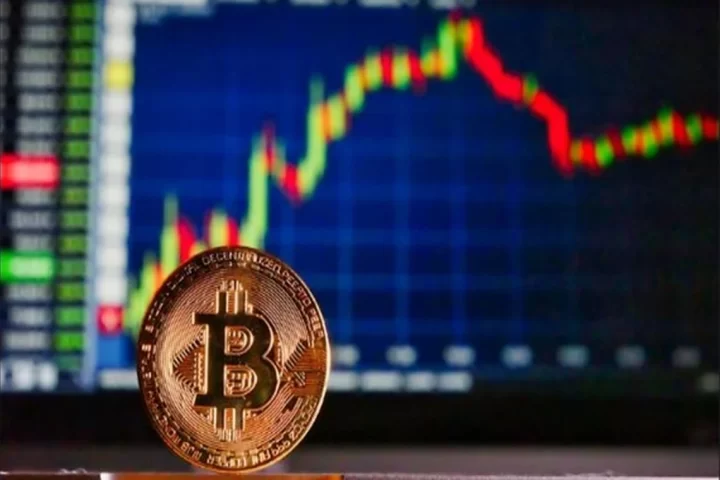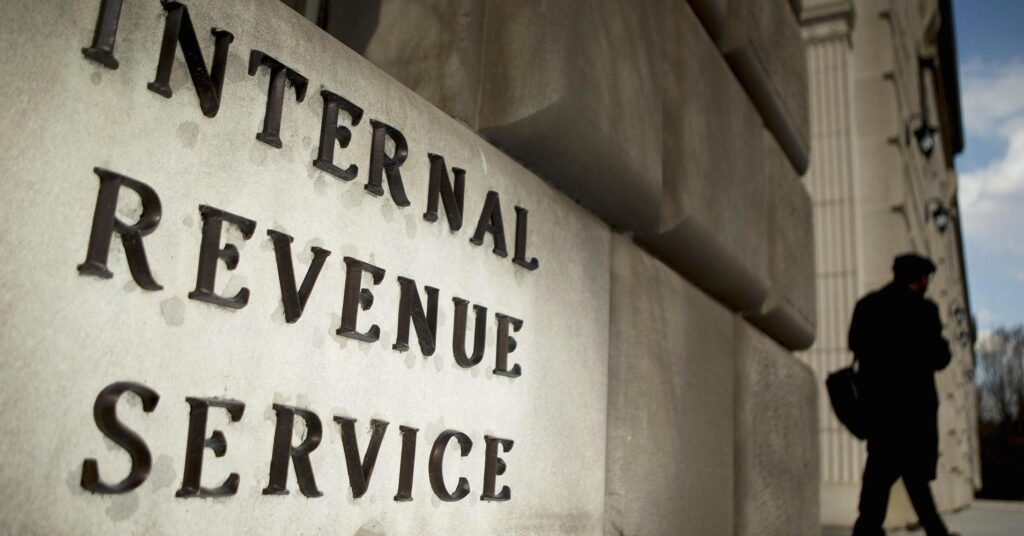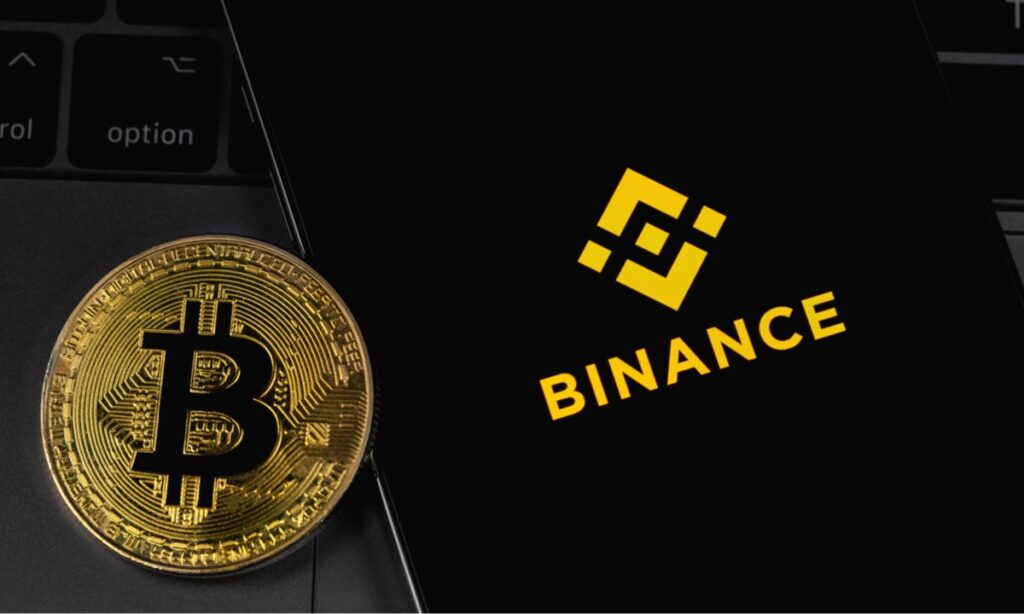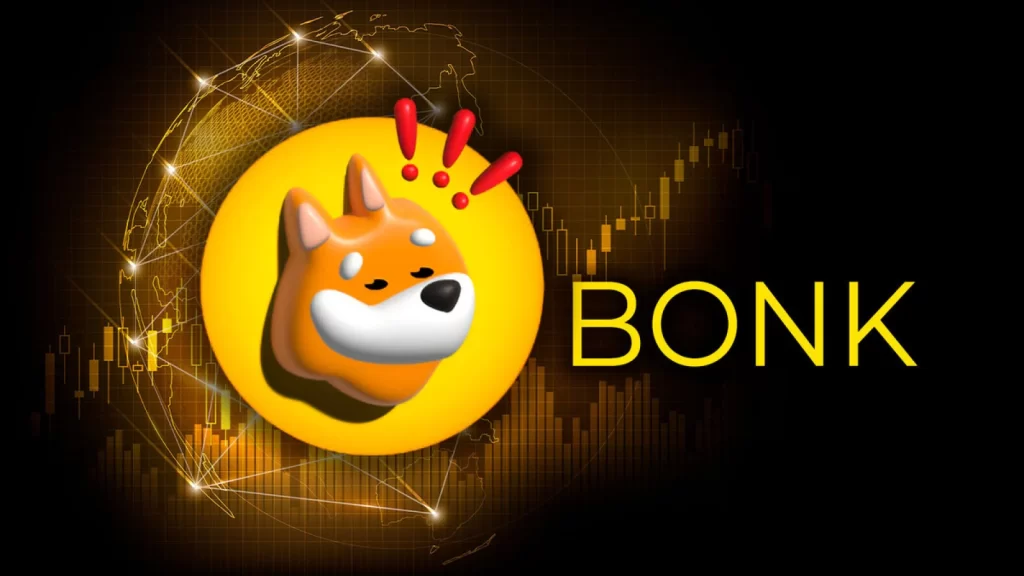Mechanism Capital co-founder Andrew Kang has highlighted the potential profitability of a new breed of memecoins, termed “culture coins,” which delve into deeper cultural values like politics, religion, and lifestyle, beyond the typical animal-themed and humor-based meme tokens.
In a post on X dated April 7, Kang pointed out that these culture-centric memecoins could outperform traditional memecoins such as Dogecoin or Shiba Inu by leveraging the strong values and identities of their communities.
“Communities with strong values and identities naturally try to convert others to their beliefs and publicly display what it is they love about their lifestyle.
“They are inherently viral,” Kang explained.
Highlighting the virality and ideological breadth of these coins, Kang noted, “The ideologies of these communities can be purely about politics, religion, consumer goods, sport, way of life or can be a mixture of all.”
He cited the rapid growth of two Solana-based memecoins, Jeo Boden (BODEN) and Doland Tremp (TREMP), as evidence of the appeal of culture coins, especially among communities with specific political inclinations.
BODEN, in particular, has seen its value skyrocket by over 700,000% since its launch on March 9, achieving a market cap of $473 million.
TREMP, while not as explosive as BODEN, has also seen considerable gains, boasting a $73 million market cap.
READ MORE: Binance’s Trading Volume Soars to Record High, Cementing Market Dominance Amidst Crypto Market Rally
Beyond politics, Kang sees potential in memecoins associated with consumer brands, such as ZYN and MOUTAI, which Mechanism Capital has invested in.
He argues these brand-affiliated coins could leverage the lifestyles associated with the brands for added virality, contrasting them with animal-themed coins for their added advantage.
Kang equates investing in memecoins with investing in traditional assets, noting that the most substantial returns often come from assets that garner widespread belief.
Yet, the crypto industry remains divided on memecoins’ impact.
BitMEX co-founder Arthur Hayes views them as a “net positive” for blockchain networks, while critics argue they represent a speculative hazard that undermines blockchain’s foundational principles.
Despite these diverging opinions, memecoins have proven to be a lucrative sector within the cryptocurrency market, with the top ten memecoins averaging gains of 1,312.6% in the first quarter of 2024.
This performance was notably higher than other crypto narratives, making memecoins the most profitable sector in the crypto industry for that period, as reported by CoinGecko analyst Lim Yu Qian.
To submit a crypto press release (PR), send an email to sales@cryptointelligence.co.uk.
Jim Lee, a seasoned veteran with 29 years of experience in the U.S. government, including a significant three-year tenure as the head of the Internal Revenue Service’s (IRS) Criminal Investigations team, has transitioned to a new role at Chainalysis, a leading cryptocurrency analytics firm.
Announced on April 8, Lee’s career move aligns him as the global head of capacity building at Chainalysis, marking an end to his extensive service with the IRS.
In his new role, Lee is set on aiding international agencies in crafting strategies to combat crimes involving cryptocurrency.
Reflecting on his time at the IRS, where his duties sometimes intertwined with Chainalysis to confiscate crypto assets tied to illegal activities, Lee shared insights on the dual-edged nature of digital currencies.
He acknowledged the inherent risks digital assets carry, such as financing terrorism and facilitating ransomware attacks, while also recognizing their legitimate uses by the majority.
“Crypto has brought greater transparency and efficiency to finance, and we’re still in the early innings,” Lee remarked, emphasizing the technology’s potential to empower individuals with greater control over their finances and enhance global financial inclusion.
READ MORE: Swaap Labs Debuts Swaap Earn To Pioneer the Next Wave of DeFi Yield Enhancement
Lee’s departure from the IRS and his decision to join Chainalysis were motivated by the firm’s leading role in securing cryptocurrency from the private sector’s perspective.
Chainalysis has been pivotal in collaborating with U.S. authorities on various criminal cases related to crypto, especially those involving ransomware during the pandemic and the tracing of transactions for tax reporting purposes.
The announcement of Lee’s retirement from the IRS came alongside the news of Guy Ficco succeeding him as chief of criminal investigations starting April 1.
This transition occurs amid growing concerns among U.S. legislators, such as Senator Elizabeth Warren, regarding the trend of government officials moving into the cryptocurrency industry after their public service.
Warren highlighted the potential conflict of interest, suggesting that such moves might appear as if officials are positioning themselves for lucrative roles in the crypto sector while still in government positions.
To submit a crypto press release (PR), send an email to sales@cryptointelligence.co.uk.
In March, PayPal USD (PYUSD), a stablecoin collaboration between PayPal and Paxos, witnessed a significant decline in circulation, dropping 39% from February to $188.5 million, as reported in Paxos’ latest transparency report.
This decrease marked a shift from the stablecoin’s previous performance, with circulation reaching highs of $304 million in February and $301 million in January.
The decline occurred despite the cryptocurrency market’s overall positive momentum, highlighted by Bitcoin’s surge to record highs above $73,000 on March 13.
Notably, PYUSD’s market capitalization also fell from an all-time high of $312 million on February 26, data from CoinGecko indicates, although it slightly recovered by around 3% over the last week to $194 million.
PayPal USD’s financial reserves as of March 29 included $14.9 million in United States Treasury bonds, contributing to a total net asset value of $192 million.
The collateral backing PYUSD in U.S. Treasury bond-collateralized reverse repurchase agreements was valued at $177.9 million, reflecting the stablecoin’s strong backing despite its decreased circulation.
Launched in August 2023 through a partnership between PayPal and Paxos Trust, PayPal USD was introduced as a stablecoin aimed at facilitating digital payments and advancing Web3 initiatives.
PYUSD maintains a 1:1 peg to the U.S. dollar, backed by a combination of U.S. dollar deposits, short-term Treasury securities, and other cash equivalents.
Eight months post-launch, PYUSD has climbed the ranks to become the 13th largest stablecoin by market capitalization, surpassing Paxos’ own Pax Dollar (USDP) and the Gemini Dollar (GUSD), as per CoinGecko’s rankings.
Despite its growth, PYUSD’s market value represents a mere 0.18% of Tether’s $106.6 billion market capitalization, underscoring the dominant position of Tether in the stablecoin market.
The total market capitalization of all stablecoins stood at $155 billion at the time of the report. As the crypto community watches, the fluctuation in PYUSD’s circulation and market value underscores the volatile nature of digital currencies, even amidst broader market rallies. Paxos has not yet responded to inquiries about the drop in PYUSD circulation.
To submit a crypto press release (PR), send an email to sales@cryptointelligence.co.uk.
In a recent turn of events, a whale wallet acquired a staggering 692.4 billion Shiba Inu tokens from the cryptocurrency exchange Crypto.com, despite the ongoing price fluctuations in the market.
This notable transaction, identified by Whale Alert and occurring at 3:18 AM (UTC), represents the most significant Shiba Inu whale activity observed this month, as verified by Etherscan.
The tokens, sent from Crypto.com, were deposited into an enigmatic whale wallet, sparking speculation and excitement among investors.
The move involved more than $19.26 million worth of Shiba Inu tokens, igniting discussions among market observers, especially those optimistic about a potential price rally.
Withdrawals of this nature are often associated with investors transferring assets to cold storage for long-term holding, reflecting a bullish sentiment amidst anticipations of a Shiba Inu market rebound.
Yet, further analysis suggests that this significant transaction could be an internal transfer within Crypto.com.
The destination wallet, though not publicly identified, operates under a Multi-signature (Multisig) framework or as a contract wallet serviced by Bitgo, which caters to both individual and institutional investors’ storage needs.
Given the smart contract capabilities allowing multiple receiving addresses and the wallet’s history of receiving 208 transfers predominantly from Crypto.com in just three days, the likelihood that this wallet belongs to a retail investor is slim.
Instead, it points to institutional use, possibly even directly linked to Crypto.com.
READ MORE: Genesis Sells 36 Million GBTC Shares to Buy Bitcoin, Aiming to Settle Debts Amid Bankruptcy
Arkham Intelligence data reveals that this wallet’s holdings total $51.1 million across various cryptocurrencies, with SHIB being the predominant asset at $19.5 million.
The presence of Crypto.com’s native token, Cronus (CRO), as the second-largest holding, further strengthens the connection to the exchange.
This event is part of a larger trend of significant SHIB transactions, reflecting the broader market dynamics.
For instance, The Crypto Basic reported that over 1.24 trillion SHIB tokens were moved to exchanges on March 15, with another significant transfer to Wintermute on March 8.
Additionally, Robinhood was noted for acquiring 946 billion Shiba Inu tokens through several transactions on April 2, showcasing the ongoing exchange activities amidst a bearish market sentiment.
Despite these large-scale movements, Shiba Inu’s price has been struggling, currently hovering around the $0.00002830 mark.
However, the coin witnessed an 18% increase in trading volume within the last 24 hours, amounting to $578 million, hinting at a potential shift in market dynamics.
To submit a crypto press release (PR), send an email to sales@cryptointelligence.co.uk.
As Bitcoin (BTC) adopted a bullish trend, a wave of enthusiasm hit the meme coin sector, propelling prominent cryptocurrencies such as Dogecoin (DOGE), Shiba Inu (SHIB), and PEPE to significant gains.
The surge in interest and value of these meme coins in 2024 has sparked speculation that their combined market capitalization could approach the $100 billion mark within the year.
Market data highlighted the remarkable performance of these digital assets. CoinMarketCap reported that DOGE, the leading meme coin by market cap, experienced a notable 5.5% increase over the past 24 hours, trading at $0.207.
Shiba Inu also witnessed a boost in its market value, climbing by 2.6% and reaching a trading price of $0.00002906.
PEPE, however, outshined its peers with an impressive double-digit growth. Its price escalated by over 13% within the same period, positioning it at $0.000007902 and elevating its market cap to more than $3.32 billion.
IntoTheBlock’s recent tweet shed light on the year’s performance of these cryptocurrencies.
According to the tweet, “while DOGE has doubled in price in 2024, SHIB has increased 2.5x and PEPE nearly 5x.”
READ MORE: Binance’s Trading Volume Soars to Record High, Cementing Market Dominance Amidst Crypto Market Rally
This surge has brought the meme coin sector’s market cap to $65 million, with optimistic projections of reaching or even surpassing $100 million by year-end, should the upward trajectory persist.
AMBCrypto’s examination of on-chain data from Santiment revealed intriguing trends regarding the potential for further price increases.
For SHIB, indicators of rising buying pressure were observed, as demonstrated by a decrease in Supply on Exchanges and an increase in Supply Outside of Exchanges.
Despite PEPE’s significant price appreciation, it encountered high selling pressure, marked by an increased Supply on Exchanges and a decreased Supply Outside of Exchanges.
However, interest from large investors appeared to rebound, with the coin’s supply held by top addresses seeing growth after a brief decline.
DOGE’s prospects appeared particularly bright, evidenced by an improvement in its Market Value to Realized Value (MVRV) ratio to 5.11%, suggesting the potential for a continued upward movement.
Furthermore, a significant drop in its Network Value to Transactions (NVT) Ratio indicated the coin might be undervalued, hinting at further price advancements in the near future.
To submit a crypto press release (PR), send an email to sales@cryptointelligence.co.uk.
The cryptocurrency market has witnessed a remarkable increase in the value of insurance funds held by top crypto exchanges, growing by over $1 billion amid an ongoing bull market.
The Secure Asset Fund for Users (SAFU) of Binance, a leading crypto exchange, now boasts a balance exceeding $2.03 billion, up from $1 billion in January 2022.
This surge is attributed to the appreciation of Bitcoin, BNB, Tether, and TrueUSD balances within the fund.
Another exchange, Bitget, reported its protection fund growing from an initial $300 million in November 2022 to $612 million, propelled by the significant gains in Bitcoin value, which rose by 136% in the past year, alongside a 79.36% increase in BNB.
Crypto exchanges often provide some insurance protection for their users, but only a few like Binance and Bitget have made their on-chain addresses public.
In 2019, Huobi (now HTX) announced a substantial reserve of 20,000 BTC ($1.32 billion) for extreme security situations, though current details of this reserve are not disclosed.
The past year also saw HTX face several security breaches resulting in substantial financial losses.
OKX operates a $700 million “Risk Shield” for user protection, but the composition of this fund in terms of tokens, stablecoins, or fiat money remains unspecified.
The approach to insurance varies among exchanges; for instance, Coinbase’s insurance coverage is dependent on the customer’s location and the nature of the held assets, either fiat or crypto.
The transparency of insurance funds is a critical issue, with some exchanges hesitant to disclose on-chain addresses due to cybersecurity concerns or potential deceit, as was the case with the now-defunct FTX.
Gary Wang, FTX’s former chief technology officer, admitted to authorities that the exchange’s advertised $100 million insurance fund in 2021 was non-existent, showcasing the potential for misinformation.
Furthermore, on-chain addresses provide limited insight, excluding off-chain liabilities, an important consideration for understanding an exchange’s financial health.
Some regions, like Hong Kong, have introduced regulations mandating crypto exchanges to insure users’ assets, covering up to 50% of both fiat and crypto holdings, underscoring the growing emphasis on investor protection in the crypto space.
To submit a crypto press release (PR), send an email to sales@cryptointelligence.co.uk.
Toby on Sol (TOBY), a trending new Solana memecoin, began trading on Raydium and Jupiter just a few hours ago, as it looks set to emulate Shiba Inu (SHIB) and Bonk (BONK).
Toby on Sol (TOBY) is poised to rally 1,100% within the next 24 hours and return to the all-time high it reached earlier today.
The memecoin was launched on 9 April, and it quickly rallied over 700%, generating massive returns for early investors.
However, after some traders took profits, the price of TOBY has dropped to around $0.00063. It now represents a great “buy the dip” opportunity, as this could be the last opportunity to buy this token at such a cheap price.
And, with this latest Solana memecoin set to recover to its all-time high of around $0.0065 within the next 24 hours, investors who buy in now could make a return of over 1,100% within a matter of hours.
Furthermore, even if TOBY returns to its all-time high, its market cap would just be around $700,000, meaning it would still have immense potential for even more growth.
Therefore, many investors are expected to hold their positions for several weeks, and hope to turn thousands of dollars into a fortune.
Toby on Sol (4aLHgSENNHKW95S95EqGvSkKogk3Gw67xStbvjkQtdT7) is currently only available to buy on decentralized exchanges, like Jupiter and Raydium, but it has been reported that the project will announce a number of centralized exchange listings later this week.
This could cause its token’s price to surge, as it will gain new exposure and see massive inflows from CEX traders.
Toby on Sol’s launch comes amid more established memecoins, like Shiba Inu (SHIB) and Bonk (BONK), trading sideways in recent weeks after previously posting meteoric gains.
This is primarily because SHIB and BONK investors have been cashing in their profits and investing the money into new memecoins, like TOBY, as they have huge upside potential – especially for early investors.
To submit a crypto press release (PR), send an email to sales@cryptointelligence.co.uk.
In a landmark decision, the U.S. Court of Appeals for the Second Circuit has ruled in favor of Coinbase, a prominent cryptocurrency exchange, amidst a legal battle that has garnered significant attention.
This ruling confirms that the sale of cryptocurrencies on Coinbase’s platform does not contravene the Securities Exchange Act, marking a considerable triumph for the company and the broader cryptocurrency sector.
This case revolved around a nationwide class of individuals who engaged in token trading on Coinbase from October 8, 2019, to March 11, 2022.
The core of the litigation questioned whether the cryptocurrencies traded on Coinbase qualified as securities under the law.
The plaintiffs brought forward claims under the Securities Act of 1933 and the Securities Exchange Act of 1934, along with alleging violations of securities laws in California, Florida, and New Jersey.
They argued that Coinbase had been involved in the sale of unregistered securities and breached multiple securities laws.
Contrarily, Coinbase maintained that the sales of crypto-assets on its platform did not fulfill the definition of a securities transaction, challenging the applicability of securities laws to these operations.
The Court of Appeals dissected various elements of the case, overturning certain lower court rulings while upholding others.
Specifically, it acknowledged the possibility of Coinbase’s liability under the Securities Act for the sale of unregistered securities but dismissed the claims under the Securities Exchange Act due to a lack of evidence for transaction-specific contracts essential for rescission under Section 29.
READ MORE: Anthropic AI Unveils Game-Changing ‘Tool Use’ Beta for Claude, Empowering Real-Time Data Integration
The interpretation of Coinbase’s user agreements, which have changed over time, played a pivotal role in the court’s decision.
The variance in language across different versions of the agreements introduced complexities regarding title and privity issues, underscoring the importance of clarity on the applicable version of the user agreement.
From one perspective, the plaintiffs see this verdict as a positive development in ensuring cryptocurrency platforms comply with securities laws, thereby protecting investors in the rapidly evolving digital asset space.
On the other hand, Coinbase views the ruling as an affirmation of its stance that secondary sales of crypto are not securities transactions.
Coinbase’s Chief Legal Officer, Paul Grewal, took to the X social platform to express gratitude for the decision, highlighting that the Second Circuit has reiterated the absence of private liability for secondary digital asset trading on exchanges under federal securities law.
He emphasized the crucial role of contractual agreements in this context.
Moreover, Coinbase underlined the importance of regulatory clarity to nurture innovation in the cryptocurrency industry, indicating the significant implications of the Court of Appeals’ decision for the regulation of cryptocurrencies and digital assets.
To submit a crypto press release (PR), send an email to sales@cryptointelligence.co.uk.
On April 6, Dogecoin experienced a notable surge in its price, marking a 7.5% increase to $0.186.
This performance starkly outshone the broader crypto market, which only saw gains of 1.71% on the same day.
Dogecoin’s bullish trend is reflective of a broader enthusiasm in the meme coin sector, suggesting a heightened risk appetite among traders.
Memecoins are often viewed as highly speculative due to their limited intrinsic value and utility. This perception places them at the extreme end of the risk spectrum, a stark contrast to traditional safe-haven assets.
Amidst this backdrop, the U.S. dollar is depreciating against a basket of major currencies, as indicated by the U.S. Dollar Index (DXY).
This depreciation, illustrated in the DXY’s four-hour chart, hints at a growing negative correlation between Dogecoin and the dollar, especially noted on April 6.
A significant development was observed when Whale Alert reported that an unidentified wallet made two large purchases of Dogecoin, totaling 199.27 million coins, from Robinhood in the last 24 hours.
These transactions, amounting to roughly $35.45 million combined, contributed to the quick uplift in Dogecoin’s price.
Contrastingly, there’s been a decline in Dogecoin whales—holders of substantial amounts of the coin. This trend suggests a possible overreaction to the large purchases at Robinhood.
Furthermore, Dogecoin’s market dynamics show a decrease in open interest and funding rates in its perpetual contracts.
From a peak of $2.21 billion on March 29, open interest dropped to $1.38 billion by April 6.
The funding rate also dipped to 0.0172% from a high of 0.106% on April 1, indicating a potential shift in trader sentiment towards closing positions, be it for profit-taking, loss mitigation, or exposure reduction.
These market movements imply a reduction in selling pressure as traders exit their short positions, which, combined with decreased trading volume and interest, can still allow for price increases.
Dogecoin’s recent price movement finds its technical roots at a support confluence marked by its 200-4H exponential moving average and an ascending trendline, around $0.167.
This setup previously catalyzed an 85% rally toward $0.22, suggesting a potential pattern for future price dynamics.
To submit a crypto press release (PR), send an email to sales@cryptointelligence.co.uk.
Andre Cronje, a prominent figure in the decentralized finance (DeFi) sector and creator of Fantom, has recently voiced his support for the Solana network despite its struggles with transaction failures.
Cronje’s backing comes at a critical time for Solana, as it faces operational challenges attributed to its rapid expansion.
In a statement on the X social platform, Cronje pointed out that the congestion issues Solana is experiencing are not due to flaws in its consensus mechanism but are technical challenges arising from increased demand for block space.
This perspective sheds light on the growing pains of an expanding ecosystem, emphasizing that the current problems stem from success rather than inherent system weaknesses.
The Solana network has seen a significant uptick in activity, partly fueled by a recent surge in interest in memecoins, leading to about 75% of non-vote transactions failing on April 4, according to Dune Analytics.
Despite this, Cronje and others in the community argue that the congestion issues are a misinterpretation of the network’s capacity to handle growth.
They see the backlash from the community, especially on social media where users have reported a deteriorating user experience, as a natural reaction to the network’s scaling challenges.
READ MORE: Investors Rush to BabyCat Coin as It’s Poised to Rally 8,000%, Challenge Shiba Inu and Dogecoin
Solana CEO Anatoly Yakovenko expressed his concerns over the difficulty of addressing these congestion issues, noting that they present a more complex problem than total network failures.
The network has experienced several outages, including a significant one in early February 2024 that halted block production for over five hours.
These incidents highlight the ongoing struggles with maintaining a stable and efficient network amid rapid growth.
In response to the latest outage, the Solana-focused software development firm Anza released a detailed report on February 9, pinpointing a bug in Solana’s Just-in-Time (JIT) compilation cache as the culprit.
Moving forward, the Solana Foundation plans to overhaul the loader system to prevent similar issues, aiming for a smoother operation.
Despite the operational hurdles, Solana’s market position remains strong, with its value experiencing a slight dip of 3% over the past week after a notable 45% rally the previous month.
According to CoinGecko, Solana’s market capitalization stands at $89 billion, making it the fifth-largest cryptocurrency by market cap.
This resilience underscores the confidence and support of influential figures like Cronje in the network’s potential and future prospects.
To submit a crypto press release (PR), send an email to sales@cryptointelligence.co.uk.











